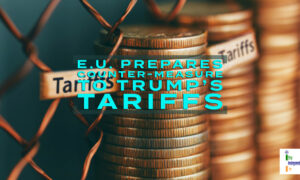
The European Commission has proposed new guidelines on transparency and targeting of political advertising, for protecting the election integrity and democracy.
The European Commission has proposed new guidelines on transparency and targeting of political advertising, for protecting the election integrity and democracy.
As per the new proposal, all such ads should be clearly labelled as ‘political advert’ and should also contain information like the cost of the advertisement and the details of the sponsor of the campaign.
The European Commission also proposes to update the current European Union (E.U.) rules concerning EU “mobile citizens” and their right to vote in European and municipal elections as well as on European political parties and foundations.
Speaking on the occasion, the Vice-President for Values and Transparency, European Commission – Vera Jourová said, “Elections must not be a competition of opaque and non-transparent methods. People must know why they are seeing an ad, who paid for it, how much, what micro-targeting criteria were used. New technologies should be tools for emancipation, not for manipulation. This ambitious proposal will bring unprecedented level of transparency to political campaigning and limit the opaque targeting techniques.”
Taking it to twitter, Vera Jourova tweeted,
Elections must not be unchecked race of dirty and opaque methods, especially online.
— Věra Jourová (@VeraJourova) November 25, 2021
Today, we set out new laws on #PoliticalAdvertising, electoral rights and party funding.#EUDemocracyhttps://t.co/DnncTlQ8kN pic.twitter.com/SkaMSui4IX
She further tweeted,
Paid content should be clearly labelled. People must know why they are seeing an political ad, who paid for it, how much, what micro-targeting criteria were used.
— Věra Jourová (@VeraJourova) November 25, 2021
Transparency rules should apply across the ads production chain (political party, PR company, platform, data broker) pic.twitter.com/ifBapJE2Kd
Talking about mobile citizens, she tweeted,
We also revise several existing laws on elections:
— Věra Jourová (@VeraJourova) November 25, 2021for 12 million mobile EU citizens, rights in country they reside strengthened
due diligence mechanism for donations to political parties above 3000EUR
capping contributions from parties member beyond the EU. pic.twitter.com/yEazPHZWep
Fair and transparent elections are an integral part of a vibrant and functioning society. That is why there is a need to support inclusive and equal participation in the 2024 elections to the European Parliament and in municipal elections across the EU.
The President of European Commission – Ursula von der Leyen tweeted,
Proud of our proposals today.
— Ursula von der Leyen (@vonderleyen) November 25, 2021
Clearer rules on transparency for political ads and on EU political parties.
It's a new push for European democracy. A priority of my mandate.
I count on the co-legislators’ swift work, to have the rules in place for the 2024 EU elections. https://t.co/Ices4OYnGu
The European Commission wants that people must be aware that whether they are looking at a paid political content – offline and online or a non-paid PR coverage.
As far as scope is concerned, political ads will include all those ads on behalf of political actors, which can influence the outcome of an election or referendum, a legislative or regulatory process or voting behaviour. In addition to providing the details of sponsor, the ad must also specify the source of funding for that advert. The use of sensitive personal data such as ethnic origin, religious beliefs or sexual orientation, will not be allowed without consent of the person concerned. For the first time, the ad must specify the group of individuals being targeted.
The Member States will be required to introduce effective, proportionate and dissuasive fines when the rules on transparency of political advertising are breached. Under the proposed Regulation, National Data Protection Authorities will monitor specifically the use of personal data in political targeting and have the power to impose fines in line with E.U. data protection rules.
Besides, the European Commission has also proposed to revise the E.U. rules on funding of European political parties and foundations. In order to encourage mobile citizens for participation in elections, the European Commission has proposed targeted amendments to the existing Directives on electoral rights including, among others, obligation to inform such citizens proactively of their electoral rights, use standardised templates for registration as voters or candidates as well as use of language broadly spoken by the mobile E.U. citizens residing at the territory.
The proposals will now be discussed by the European Parliament and the Council. To ensure that the 2024 elections are held in the best way, the new proposal will come into force by spring of 2023.







